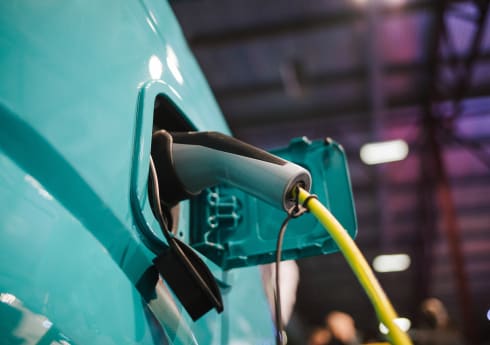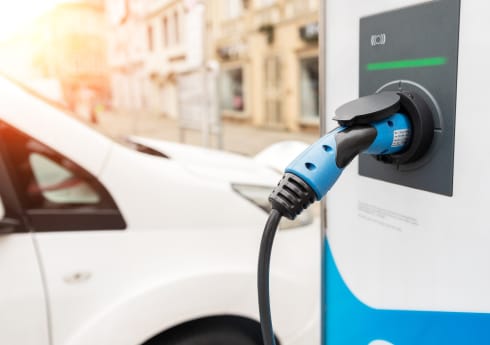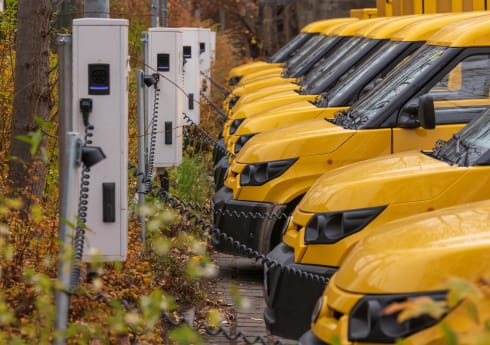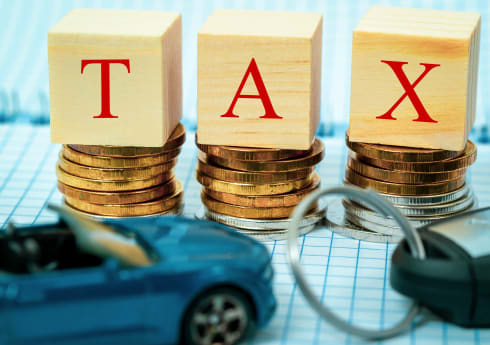Why Range Anxiety Shouldn’t Be Holding Us Back
Range anxiety is one of the biggest fears holding drivers across the UK back from jumping into the electric trend. But does this fear match up with the facts? We’ve dug into the details from the number of charge points in the country to the mile range of electric vehicles to make it easy for you.
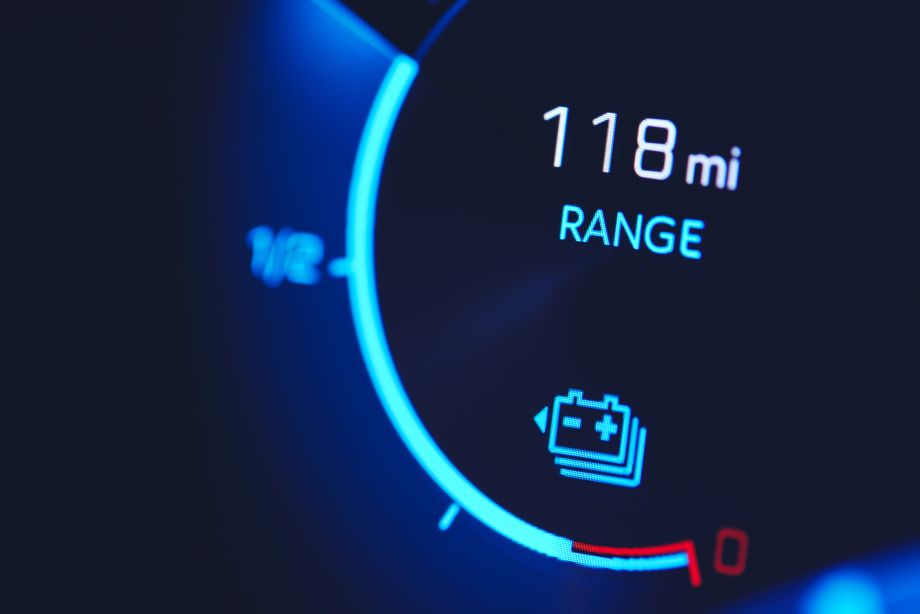
What is range anxiety?
Range anxiety is the fear of running out of fuel in a vehicle. Although the term has been around since 1997, it’s most often connected to electric vehicles. Will you have enough charge to make it to the next station? No one wants to be stuck on the side of the road, after all.
But can the growth of electric vehicles in the UK put this common fear to rest? We’re digging into the details.
Number of charging points in the UK
The UK has 8,378 petrol stations. If you’re driving on petrol or diesel, you hardly ever have the fear of running out of fuel. What about electric vehicles?
In 2022, there are 28,375 public charging points in the UK according to the Department of Transport. That’s about 19,146 EV stations. Sounds like a lot? That’s because it is! The number of charging points in the UK shows no signs of slowing down either with a 37% increase since 2021.

iCompario tip: Heard the news?
The UK government are planning a ten-fold increase in charging points by 2030 – up to 300,000 public charging points. The government is investing £1.6 billion into the expansion.
One common concern is that most of the charging points are concentrated in London and around other big cities, so long journeys and rural routes are harder with EVs. It is true that London has the biggest number of charging points in the UK, followed South East England and Scotland. There are very few areas in the UK untouched by EV charging points. According to government statistics, every region in the UK has seen an increase in the number of charging points in 2022. We don’t expect that to slow down.
The rise of rapid charging
5,156 of the charging points in the UK are rapid chargers (25-99kWh) in 2022. Compared to 2021, that’s a 5% increase. After all, range anxiety can’t be solved if all recharging stations are slow. Sometimes you need to refill quickly.
One common myth is that electric vehicles take forever and a day to recharge. However, on a rapid charge, many EVs can get up to full in 40 minutes or less. The average charge time of an EV depends on its battery size, charging point type, weather, and state of the battery. Much like charging up your phone, it takes longer to charge up from 0% than topping up the charge.
Charging at home
It’s hard to know how many private EV charging points there are in the UK, but we do know that the market is growing. Charging up at home helps to reduce range anxiety because you can recharge before longer journeys in a convenient place.
The speed of home charging points varies depending on your power outage. With the right setup, UK homes can get 7.4 kwh charging points. Slow chargers (around 3 kWh) are popular options too.
Charging at work
68% of people in Great Britain commute to work in their car. Charging up at home can be convenient, but not everyone has the space or money to install a charging point. Businesses, however, can have their own parking spaces where they can install charging points.
Charging at work is a convenient option for both employees and employers. It’s difficult to measure how many of these points have been installed, however, the government’s Workplace Charging Scheme does appear to be popular. The grant offers £350 for each charging point to cover the cost of installation.
How far can electric vehicles go?
On average, people in the UK don’t drive that far. The average daily mileage is only 19 miles or 6,800 miles per year. People are driving less than they used to. The average from 2019 to 2020 decreased by over 10%.
With that in mind, having a long-range electric vehicle is more about convenience than a necessity for the average driver in the UK. But how far can electric vehicles go before needing to be recharged?

The range of electric vehicles
The range varies from vehicle to vehicle, but we’ve delved into some of the most popular EVs on the market to find out how far they can go.
Electric cars
- Tesla Model 3: Standard – 278 miles
- Nissan Leaf – 168 miles
- Audi E-Tron – 188 miles
Electric vans
- Mercedes-Benz eSprinter: 82.6 miles
- Citroen e-Berlingo: 174 miles
- Peugeot e-Expert: 211 miles
Currently, the longest-range electric car is the Tesla Model S at a whopping 412 miles. While many electric vehicles can’t get up to that range, many can be upgraded to a bigger battery for a faster charging time and longer range. EV drivers in the UK should have no issues commuting thanks to the increasing range of EVs and the number of charging points.
Who has range anxiety?
Range anxiety isn’t just a fear that electric vehicle drivers experience. This anxiety holds back drivers from buying an electric vehicle. A survey in 2020 by the AAA found that before owning an electric vehicle, 91% of drivers experienced some worries about the range of EVs. This fear can hold drivers back from making the switch to electric.
Older generations can have more range anxiety
While there haven’t been tons of research on range anxiety, some surveys show interesting results. A survey of UK drivers found that 75% of those over 55 had range anxiety worries. Only 40% of those aged between 18-34 had the same concerns.
In general, it seems younger generations are more concerned with having a faster recharging rate. As the number of electric vehicles on the road continues to increase, we’re sure that the percentage of drivers with range anxiety will decrease with it.
What increases the range of EVs?
By 2030, electric vehicles are expected to have an average range of 273.4 miles (440 kilometres). It seems having a longer range and increasing the number of charging points are the best ways to address range anxiety.
A lot of EVs can already reach the 200+ mile range with the right driving conditions. If you want the longest range out of your vehicle, there are some steps you can take.
1. Avoid high speeds
We all love those moments of speed down the motorway. But going over 70 mph causes a serious hit to the range of your EV. Teslike found that the Tesla Model 3 loses 34.65% of its range when you drive at 80 mph compared to 55 mph.
2. Travel light
The more stuff you have in your car, the less efficient it will be. Travelling light is an easy way to boost your efficiency and get a longer range.
3. Take an efficient route
Optimise your journeys! Driving on flat roads takes less energy than in hilly areas. Of course, sometimes it can’t be helped. But if you can plan a more efficient route you’ll spend less time charging up later. Some electric vehicles even have certain navigation systems like a SAT Nav that tell you the most efficient route if you really want to save on battery.
4. Battery saver modes
Some EVs like the Mercedes eSprinter come equipped with an Eco or economy driving mode. This is much like putting your laptop or phone into battery saving mode. It might get rid of some creature comforts (say goodbye to your heated driver’s seat), but it will give you a longer range.
What about battery size?
The average battery size for electric vehicles is 60.3 kwh. Electric vehicle batteries have come a long way. When the Nissan Leaf, a car that took the world by storm, was first released it had a battery size of only 24 kwh.
These days the Mercedes EQS AMG 53 4MATIC+ tops the charts with the biggest battery size of 107.8 kwh. Bigger batteries can give you a longer range in one charge.
But a bigger battery isn’t always better. Most drivers will be satisfied with the common 40 kwh battery, which can take you about 150 miles on full charge.
Drivers in the UK don’t need to worry about being stranded without charge. The number of charging points is increasing, batteries are getting bigger, and the growth of EVs shows no sign of slowing. We get the impulse behind range anxiety, but the numbers just don’t hold up.
Will you be making the shift to EV or is range anxiety still holding you back?
